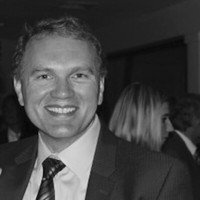Roland Miezianko is a pivotal figure at Google, specializing in Cloud AI and Machine Learning within the healthcare and life sciences (HCLS) sector. His current role focuses on driving digital transformation across healthcare organizations by harnessing the power of data-driven innovation. With a robust background...
Roland Miezianko is a pivotal figure at Google, specializing in Cloud AI and Machine Learning within the healthcare and life sciences (HCLS) sector. His current role focuses on driving digital transformation across healthcare organizations by harnessing the power of data-driven innovation. With a robust background in AI large language models, natural language processing (NLP), and computer vision, Roland is at the forefront of developing cutting-edge solutions that enhance patient care and operational efficiency.
One of his key projects involves the creation of NLP differential diagnosis and triage chatbot systems, which leverage advanced machine learning techniques to assist healthcare professionals in making informed decisions quickly. Additionally, Roland has been instrumental in the development of auto-text generation systems using custom GPT neural networks, enabling unique story generation that can be applied in various medical contexts, from patient narratives to clinical documentation.
His expertise extends to the SCOT (Supply Chain Optimization Technology) project, where he applies machine vision and medical imaging techniques to optimize supply chains in healthcare settings. Roland's work with medical volumetric image and video analytics, alongside the development of a medical knowledge graph, showcases his commitment to integrating AI into clinical workflows to improve diagnostic accuracy and treatment outcomes.
With a skill set that includes Vertex AI, retrieval-augmented generation (RAG), and Keras, Roland is not only a project manager but also a thought leader in the application of embedded software and neuro-linguistic programming in healthcare. His contributions are crucial in re-imagining how healthcare organizations operate, ultimately leading to a more efficient, data-powered future in the life sciences industry.







